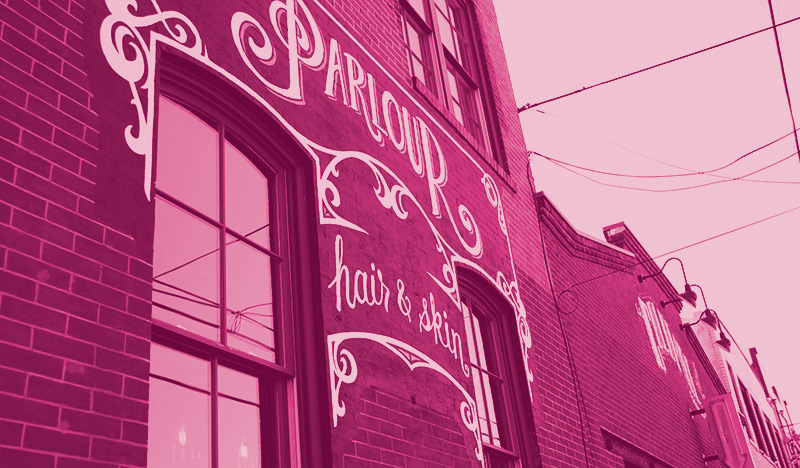B Lab Strikes Again…
Last week, the New York Times reported that Kickstarter, which has been a Certified B Corporation since December 2014, upped it’s game by reincorporating as a benefit corporation—a legal structure that extends its fiduciary responsibility beyond shareholders to stakeholders like employees, community and the environment. It represents a doubling down of an increasingly popular proposition: That doing good can be as much a part of a company’s corporate mandate as doing well. It’s just the latest coup for B Lab, the Wayne-based nonprofit that has jumpstarted the international B Corp movement, which extends companies’ fiduciary responsibility beyond shareholders to stakeholders like employees, community and the environment.
Over 1,400 companies worldwide have joined the B Corp trend. As the Times heralded last spring: “Interest in Social Mission Gains Ground Among Small Companies.” That’s when B Corp Etsy, the online marketplace for homegrown arts and crafts, began trading publicly.
“It’s awesome that Kickstarter is using the benefit corporation structure,” says B Lab co-founder Jay Coen Gilbert. “They join an increasing number of venture-backed companies to do so. Kickstarter’s leadership will make it easier for many to follow, especially with investors like Fred Wilson from Union Square Ventures talking about it.”
Look for more big name companies to get in on the act, because of demand: Research shows that younger customers and employees are more inclined to buy products and toil in workplaces whose social mission aligns with their values.
…As Does Liz Arnold
If you were hanging out last Saturday inside the Francis Festival grounds, you might have seen a young woman dressed as the Pope, toting a cardboard cutout of the Pontiff and handing out anti-fracking literature. That would have been rabble-rousing activist Liz Arnold, who we last wrote about after she commandeered the stage during a Democratic gubernatorial primary debate and filibustered about the nearly 2,000 Pennsylvanians who have filed complaints about fracking’s ill effects on their drinking water.
Since then, Arnold, one of the leaders of Encouraging the Development of a Green Economy, or EDGE, has, she says, welcomed a new ally to her cause: Pope Francis. Two weeks ago, when executives of the shale industry gathered at the Convention Center to huddle over ways to turn Philly into an energy hub, Arnold and about thirty of her compatriots were there, shouting excerpts from the Pope’s 192-page encyclical on climate change to the perplexed executives: “You have a responsibility to care for the common home!” Some dressed as priests and nuns to perform a mass exorcism: “Exorcise the demons of greed and evil these otherwise decent people are filled with,” they shouted to the heavens as the perplexed businessmen in suits walked by.
Like the Abbie Hoffman-led Yippies of the Sixties—who once started a near-riot by dropping hundred dollar bills onto the floor of the New York Stock Exchange and who protested the Vietnam War by performing a mass “levitation” of the “evil” Pentagon—Arnold and EDGE are committed to tongue-in-cheek theatre as their favored mode of spurring social change. At the inauguration of Governor Wolf, one of Arnold’s colleagues, Maria Kretschmann, was in attendance dressed as Marie Antoinette, after reading that Wolf had said that, when it came to fracking, he wanted to “have my cake and eat it, too.” The stunt not only made news, but got Kretschmann a brief audience with the governor.
Arnold laments that it takes gimmicks to get such an important issue talked about, noting that a recent investigation by the Public Herald raised questions about how the Pennsylvania Department of Environmental Protection has been handling drinking water contamination complaints since fracking began over a decade ago.
Even after New York State cited public health concerns while banned fracking, Arnold says it’s hard to get the issue on the radar screen here. “You’ve got willful negligence on the part of the DEP, and you’ve got essentially a media blackout of this issue,” says the 31-year-old electrician by trade. “Fracking is debated in New York and in the United Kingdom. But not here, where the industry is a major political donor.”
So she pledges to keep speaking truth to power—albeit with a good-natured, theatrical wink.
Up Next for Next Stop: Democracy!
With a little over a month to go until the Nov. 3 election, Next Stop: Democracy! is almost ready to test its quirky get-out-the-vote hypothesis: That a series of arty signs directing people to their polling place might stimulate turnout in an election that no one expects will draw many to the ballot box.
Of course, only a lucky few voters-to-be will actually see the signs by artists as varied as Isaiah Zagar, Kid Hazo and Dominic Episcopo (to name a few). After all, there are 850 polling places in the city—and only 60 Vote Here signs.
Thankfully, you can see them all in one place in the weeks leading up to the election. “Signs of Change,” a DesignPhiladelphia exhibit, will open on October 15th at ImpactHub (the co-working space of Here’s My Chance, a do-good branding agency, where Sylvia works). All 60 of the Vote Here signs will be on display, as will some of the artists, including those on the opening reception’s panel discussion: NDA, Ishknits, Ryan Psota, Austin Seraphin and Sonia Petruse. It is likely to be a dizzying display of the variety of Philly-based artists, which in and of itself is a noble undertaking.
Beyond that, out on the streets, will Next Stop: Democracy! jump-start voting? Will Sylvia and her colleagues prove that simple way-finding is the answer to our city’s poor showing at the polls? Not likely. But at least the city will look prettier on the day we elect our next mayor. And maybe, just maybe, a few more voters will be part of that decision.

